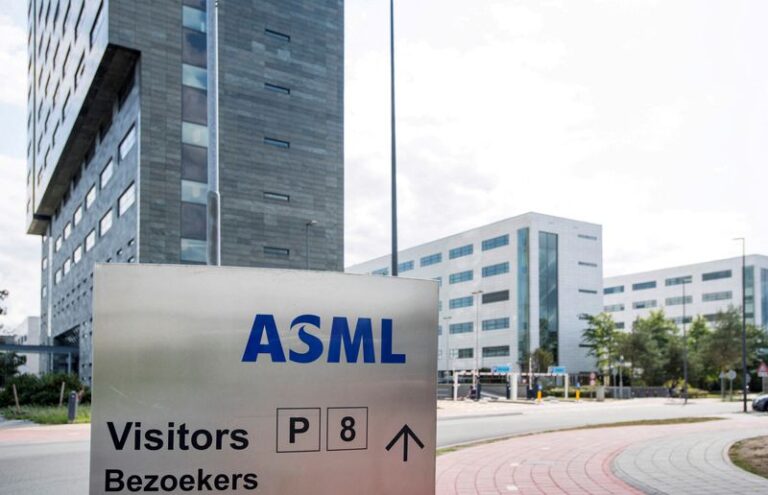By Toby Sterling and Nathan Vifflin
AMSTERDAM (Reuters) – Computer chip equipment maker ASML, facing the threat of new U.S. restrictions on trade with China, is optimistic about sales growth over the next five years as the AI’s rise is fueling strong demand for the company’s most advanced tools.
CEO Christophe Fouquet, speaking at the company’s investor day in Veldhoven in the Netherlands on Thursday, said the company’s sales growth would average 8% to 14% over the next five years.
“Looking ahead to 2030, we remain very, very optimistic,” Fouquet told the gathered investors and analysts.
He said the global chip market would grow 9% annually through 2025, surpassing the $1 trillion mark around 2030, with AI chips growing rapidly to account for 40% of the total.
This helps ASML because it means strong growth in cutting-edge logic and memory chips, which means increased demand for ASML’s most advanced EUV product lines.
Chipmakers such as TSMC, ASML’s largest customer in Taiwan, which makes AI chips for Nvidia, use ASML’s EUV tools to create circuits.
But ASML has been barred from selling its EUV lithography equipment and most of its DUV lithography equipment in China following successive restrictions imposed by the US and Dutch governments since Trump’s first term.
In October, ASML said it expected sales in China to fall to 20% of total sales after contributing more than 40% over the past six quarters.
ASML is still able to sell relatively older “dry” DUV product lines in China without restrictions.
Analysts said they were reassured by the group’s forecasts at the start of the investor day, as the group will also face questions about sales prospects in China following the election of Donald Trump as US president. .
The company also forecasts revenue of €44 billion to €60 billion ($46 billion to $63 billion) by 2030 and gross margins of between 56% and 60%, unchanged from previous long-term forecasts. term published in 2022.
Analysts said it was also reassuring after third-quarter results in October fell short of expectations in years.
Customers such as Intel and Samsung have delayed equipment orders due to weakness in the consumer electronics, automotive and industrial chip markets.
“The first look looks positive,” said Kevin Wang of Mizuho Securities, adding that some investors expected the guidance to be lowered. “Management remains optimistic about ASML’s sales and profitability growth.”
JPMorgan analysts said the lack of surprises in the forecasts was “positive.”
“Barring further government intervention on Chinese shipments, the market can hope for a better 2026. Good returns for patient investors,” they wrote.

